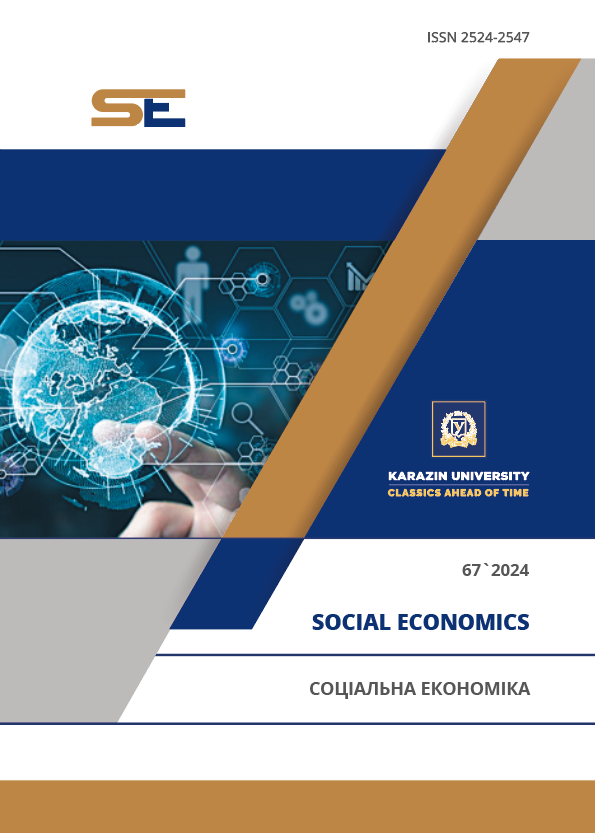EMERGING GAMBLING MARKET OF GEORGIA (ECONOMIC DIMENSION)
Abstract
There are many different views on gambling in the history of mankind, which leads to constant debate about the advantages and disadvantages of gambling. In particular, one group of people sees it as a way to have fun and rejuvenate; the second group considers it as a category of moral decline of human beings; the third group views it as social evil and crime-prone behavior; another group deems gambling as a business activity and supports its legalization. Gambling has negative as well as some positive impact on the economy of the country and the society general. The paper considers the challenging issues of the gambling policy of Georgia in recent years from pragmatic as well as conceptual point of view, where the social losses and economic benefits of gambling are presented.
In a purely economic sense, gambling is as much a business as any other business in the business sector, but it differs radically from all other areas of business in the following specifics for the state and the society living in this field: 1. a «set» of extremely high social risks is created, the partial neutralization of which is possible only in case of its best organization; 2. In any country, the gambling business is associated with the ugly and difficult-to-control practice of money laundering, which states are struggling with through various monitoring levers and mechanisms.
The work deals with analysis and discussion of the role of gambling business and its importance in economy, objective and subjective factors of increase and development of the gambling segment, effects of its positive and negative influence on stakeholders, fiscal determinants, financial-economic and social-economic problems of the sector, proper recommendations have been developed on the basis of the theoretical and empirical analysis and conclusions.
Downloads
References
Banks, J. (2020). Online Gambling and Crime: Causes, Controls and Controversies. London/New York: «Routledge».
Clark, L. (2016). The Eccentric World of Casino Gambling. Florida: «Clark Economics».
Stefanchuk, R. O., Hetmantsev, D. O., & Toporetska, Z. M. (2022). Models of Public Management of Gambling Business in the World. Journal of the National Academy of Legal Sciences of Ukraine, 29(1), 94-105. doi: https://doi.org/10.37635/jnalsu.29(1).2022.94-105
Egerer, M., Marionneneau, V., Nikkinen, J., & Palgrave, M. (Ed.). (2018). Gambling Policies in European Welfare States: Current Challenges and Future Prospects. doi: https://doi.org/10.1007/978-3-319-90620-1
Gunter, B. (2019). Prelims, Gambling Advertising: Nature, Effects and Regulation (pp. i-v). Emerald Publishing Limited, Leeds. doi: https://doi.org/10.1108/978-1-78769-923-620191001
Hojnik, J. (2018). Online Gambling under EU Law: Strolling Between Controlled Expansion and Genuine Diminution of Gambling Opportunities. LeXonomica, 10(2), 67-102. doi: https://doi.org/10.18690/lexonomica.10.2.67-102.2018
Luin, D., & Hojnik, J. (2013). Gambling Regulation in Slovenia: From Adopting to Socialist Morality up to European Union Free Trade Environment. Gambling Law Review and Economics, 17(1). doi: http://dx.doi.org/10.2139/ssrn.2834282
European Gaming and Betting Association (EGBA). (n.d.). Manifesto: A EU Framework for Online Gambling 2.0. Retrieved from https://www.egba.eu/news-post/manifesto-a-eu-framework-for-online-gambling-2-0/
McGowan, R. (1994). State Loterries and Legalized Gambling. London: «Praeger».
McGowan, R. (1994). State Lotteries and Legalized Gambling: Painless Revenue or Pain- ful Mirage? Westport, Conn.: Praeger.
McMillen, J. (Ed.). (2005). Gambling Cultures: Studies in History and Interpretation. London/New York: «Routledge».
Sala, V. D. (2010). Stakes and States: Gambling and the Single Market. Journal of European Public Policy, 17(7), October, 1024-1038. doi: http://dx.doi.org/10.1080/13501763.2010.499244
Selin, J. (2019). National Gambling Policies and the Containment of the EU’s Politico-Legal Influence. Nordic Studies on Alcohol and Drugs, 36 (2), 77-90. doi: https://doi.org/10.1177/1455072519835703
Walker, D. M. (2015). Sin and Growth: The Effects of Legalized Gambling on State Economic Development. Contemporary Economic Policy, 29(1), 101-114. doi: https://doi.org/10.1111/j.1465-7287.2010.00198.x
Williams, L. V, & Siegel, D. S. (2013). The Oxford Handbook of the Economics of Gambling. New York: Oxford University Press.
Williamson, G. R. (2019). Gambling Games of the Old West. USA: Indian Head Publishing.
Zheng, V., & Wan, P. (2014). Gambling Dynamism, The Macao Miracle. Chinese University of Hong Kong. Berlin, Heidelberg: Springer, 202 p. doi: https://doi.org/10.1007/978-3-642-40749-9
Fleissig, A. R. (2020). Impact of Casino Gambling and Lotteries on Demand for Other ‘Sin’ Goods. Atl Econ J, 48, 327–338. doi: https://doi.org/10.1007/s11293-020-09678-y
Resce, G., Lagravinese, R., Benedetti, E. et al. (2019). Income-related inequality in gambling: evidence from Italy. Rev Econ Household, 17, 1107–1131. doi: https://doi.org/10.1007/s11150-019-09468-9
Badji, S., Black, N., & Johnston, D. W. (2023). Economic, Health and Behavioural Consequences of Greater Gambling Availability. Economic Modelling, 123, 106285. doi: https://doi.org/10.1016/j.econmod.2023.106285
Boto-García, D., & Pérez, L. (2023). Tourism seasonality and gambling: The role of a new casino’s opening. Annals of Tourism Research, 99, 103529. doi: https://doi.org/10.1016/j.annals.2023.103529.
Farrell, L., & Fry, J. M. (2021). Australia’s gambling epidemic and energy poverty. Energy Economics, 97, 105218. doi: https://doi.org/10.1016/j.eneco.2021.105218.




